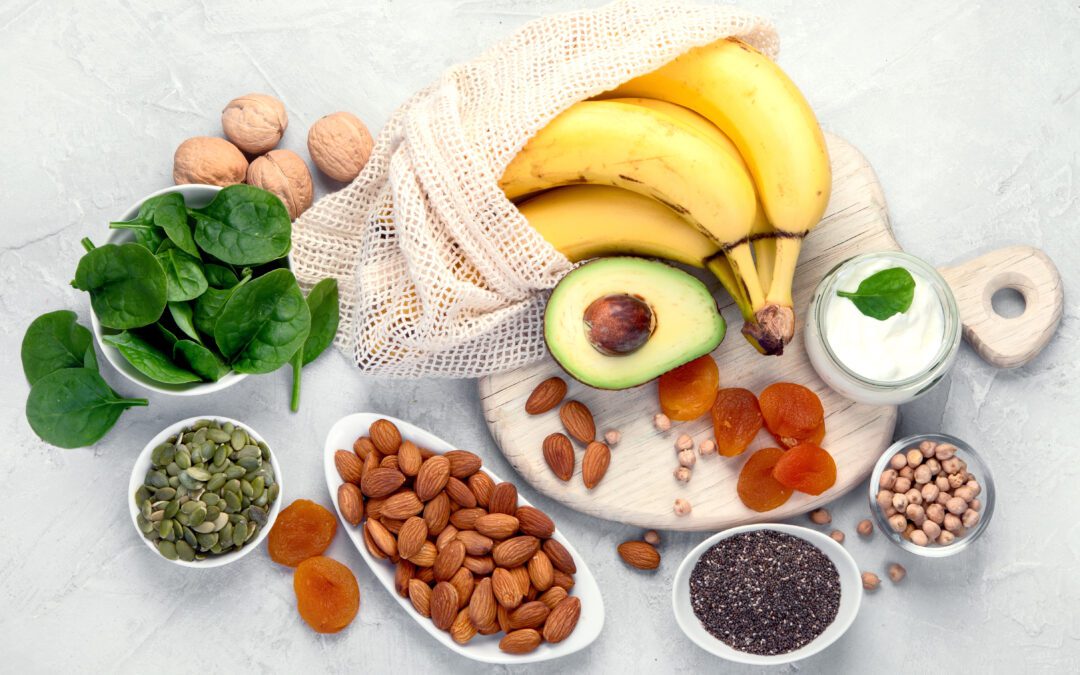When it comes to nutrition, the amount of information available can become confusing. One of the most fundamental concepts to understand is macronutrients. What are macronutrients? They are the nutrients our bodies need in large amounts to function properly. They not only provide our body with energy but are essential in building and repairing tissues, hormone production and maintaining bodily functions.
The three primary macronutrients are protein, carbohydrates, and fats. Whilst each macronutrient is important, they all have different roles in ensuring healthy bodily functions.
Let’s discuss what these nutrients do for your body and how you can include them in your diet.
Table of Contents
Protein
Protein, which is made up of amino acids, are part of most bodily functions including enzyme building, hormones, immunity and fluid and electrolyte balance. Proteins are made up of both non-essential amino acids – meaning our bodies are capable of making them and essential amino acids which we must consume from the food we eat.
Which foods contain protein? Protein can be found in varying amounts in a range of foods including meat, poultry, fish, eggs, dairy products, legumes, nuts, seeds and wholegrains.
When it comes to protein intake, the amount your body needs will depend on your age, gender, weight, and activity level. The good news? With equ’s nutritionist designed meal plans we take away the guesswork, providing you with a breakdown of how much protein is best for your individualised goals and needs.

Carbohydrates
Carbohydrates, required to fuel even the simplest of activities, can be categorised as both simple and complex. When broken down by the body they turn into glucose, the fuel most easily used by our body Not only do carbohydrates provide the body with energy, they also help with blood sugar regulation and breaking down of cholesterol.
Simple carbohydrates, known more commonly as sugars, are found in foods like lollies, honey, maple syrup, cereals, desserts and soft drinks. Due to their simple chemical structure they are quickly broken down by the body creating a sharp spike in blood glucose levels resulting in short lasting energy supply.
Complex carbohydrates, as the name suggests, have a much more complex chemical structure, requiring more work by the body to break them down into energy. This results in a slower, longer lasting release of energy for fuel. They are also a great source of vitamins and minerals as well as soluble and insoluble fibre, which can help to improve digestion, increase satiety and improve bowel movements.
Carbohydrates are an important macronutrient to include in your diet and whilst we encourage a balance of all foods in your daily diet, it is important to understand why including a greater variety of complex carbohydrates is integral to reaching your health goals and maintaining your energy levels. This is why equ meal plans can help to educate you on what your body needs to perform at its best.

Fats
Fats are essential for maintaining healthy skin and hair, insulating body organs against shock, maintaining body temperature, and promoting healthy cell function. However, not all fats are created equal. Understanding the difference in types of fats can help you to make better choices and how they can benefit or hinder your health goals. Fats as a whole are a much higher calorie macronutrient (9 calories per gram) than protein and carbohydrates (4 calories per gram) therefore understanding portion control is important, particularly when trying to lose or maintain weight.
Saturated fats, mainly found in animal products (meat and dairy) but can also be found in plant products like coconut oil and palm oil could increase your risk of developing metabolic and cardiovascular diseases.
On the other hand, monounsaturated fats and polyunsaturated fats, considered ‘healthy fats’ have been shown to lower bad cholesterol levels and decrease the risk of cardiovascular and metabolic diseases. Some good sources of healthy fats include nuts, seeds, avocados, olive oil, and fatty fish like salmon.
Including a moderate amount of unsaturated fats in your diet can help to keep you full and stabilise energy and blood sugar levels

At equ we believe education is key to building and maintaining a healthy relationship with food and incorporating a variety of foods from each macronutrient group into your diet can help ensure that you’re getting all the necessary nutrients for optimal health. Our meal plans are designed by a team of qualified Nutritionists, designed to help you achieve your weight-loss and health goals with achievable and sustainable results.

